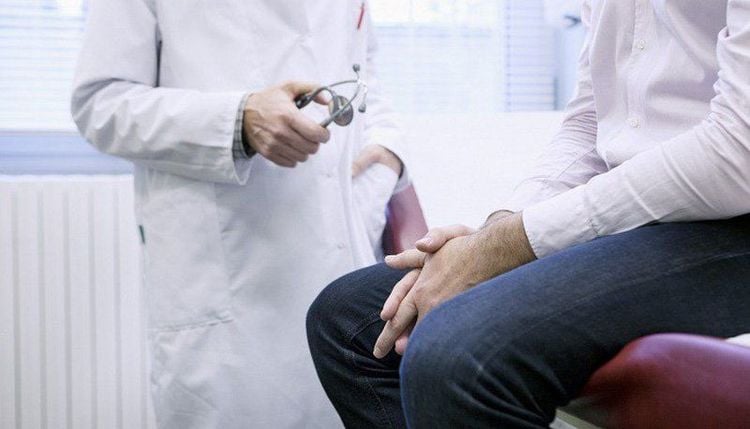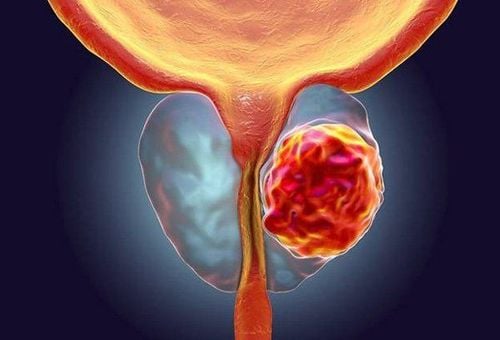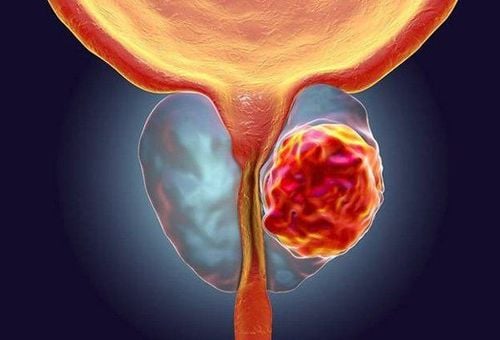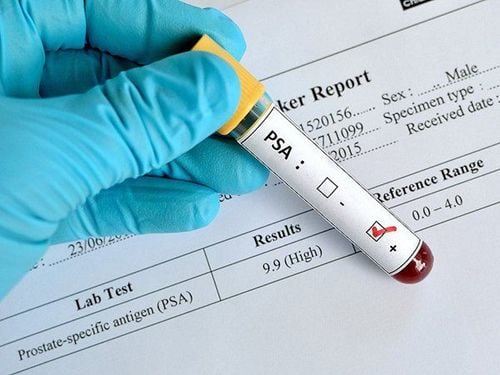This is an automatically translated article.
Prostatectomy is often used in cancer treatment. Prostate and cancer cells here produce PSA. Your doctor will test PSA after prostatectomy to check the effectiveness of the procedure as well as signs of cancer recurrence.
1. Overview
Prostate-specific antigen (PSA) test, usually indicated for men over 55 years of age, helps screen for prostate cancer by measuring the amount of protein in the blood produced by the cells. secreted by cells in the prostate gland. In addition to screening, you also need to have the test done after all or part of the prostate is removed. This step will help evaluate the effectiveness of the treatment and determine if the cancer has returned.
Frequency of checkups is usually every few months after prostatectomy. However, having to go for multiple cancer tests, as well as sometimes unclear results, can cause a lot of anxiety for patients and families.
To ease your fear, you can actively learn some relevant knowledge before taking the test. Once you receive the results, especially if your PSA level is higher than normal, ask your doctor to explain, assess the situation, and provide follow-up advice.

Người bệnh nên nhờ bác sĩ giải thích và tư vấn điều trị khi có kết quả xét nghiệm
2. Why should PSA be checked after prostatectomy?
The goal of prostatectomy is to remove all or as much of the cancer cells as possible. If the cancer has not spread, you can be cured with this method.
But the truth is that no surgery is perfect. It is possible that some of the cancer cells had spread outside the prostate (metastasized) before the procedure. Or the surgery might leave some cancer cells behind, giving them a chance to start growing in the future.
Checking the PSA index after prostatectomy regularly is a way for the doctor to monitor the treatment process, evaluate the effectiveness of prostate cancer surgery and determine whether the cancer has returned or not.
3. Frequency of PSA check after prostatectomy
You will have your first PSA test 1 - 3 months after prostate cancer surgery. Because some PSA remains in a patient's blood immediately after the prostate is removed, it may take some time to get more accurate results.

Nên tiến hành xét nghiệm PSA sau khoảng 1-3 tháng từ khi mổ ung thư tiền liệt tuyến
4. Meaning of PSA
PSA test helps measure the level of prostate-specific antigen in the patient's blood. The lab will report the results in nanograms of PSA per milliliter of blood (ng/mL).
In the body only the prostate gland secretes PSA, so this level should drop to almost zero within 4 weeks after surgery. A test result greater than 0.2 ng/mL a few months after the procedure could be a sign that your prostate cancer has returned. This is called biochemical recurrence.
A higher than normal PSA after prostatectomy also does not mean that you have cancer. Results may vary by person and by laboratory. To find out if you have cancer, a more accurate way is to test how rapidly the PSA rises.
PSA rise rate test is a measure of the change in PSA index over time. Calculate how long it will take for your PSA level to double. If they increase rapidly, it could be a sign of cancer. Knowing the rate at which PSA rises will help doctors predict whether the cancer has spread and how long a patient will need treatment.

Tốc độ gia tăng của chỉ số PSA giúp bác sĩ dự đoán khả năng lây lan của ung thư
5. Next Steps
Many people feel very stressed knowing their PSA levels are higher than normal. In this case, it's a good idea to ask your doctor what the results mean and what steps to take next. Sometimes you will need further treatment, or you can wait and have regular PSA tests to monitor your cancer.
It's important to remember that PSA testing isn't everything. PSA levels can fluctuate on their own and vary from person to person. Even if your cancer cells are still present or have recurred, there are cases when it does not spread for a long time.
If your cancer recurs, further treatment options usually include radiation to the area of the previous prostate and hormone therapy. These treatments can reduce the risk of cancer growing and spreading.
Recommended video:
More effective cancer treatment with the first Australian standard radiotherapy technique in Vietnam
In short, surgery for prostate cancer is an effective treatment. Follow-up visits and PSA testing after prostatectomy are important to check for signs of recurrence. The doctor will provide a supportive care plan for the patient, including status assessment, dietary advice, screening tests, and potential side effects warnings.
Vinmec International General Hospital with the most advanced equipment, a team of top doctors with many years of experience in the field of urology is the perfect healthcare address for you and your loved ones. To detect the possibility of prostate cancer early, you can refer to the prostate cancer intensive examination package at Vinmec hospitals and clinics nationwide.
If you have a need for consultation and examination at Vinmec Hospitals under the national health system, please book an appointment on the website for service.
Please dial HOTLINE for more information or register for an appointment HERE. Download MyVinmec app to make appointments faster and to manage your bookings easily.
Reference source: webmd.comMORE:
Biopsies for rapid diagnosis of prostate cancer Robotic surgery to "blow up" prostate cancer for Japanese doctors Prostate cancer intensive examination package











